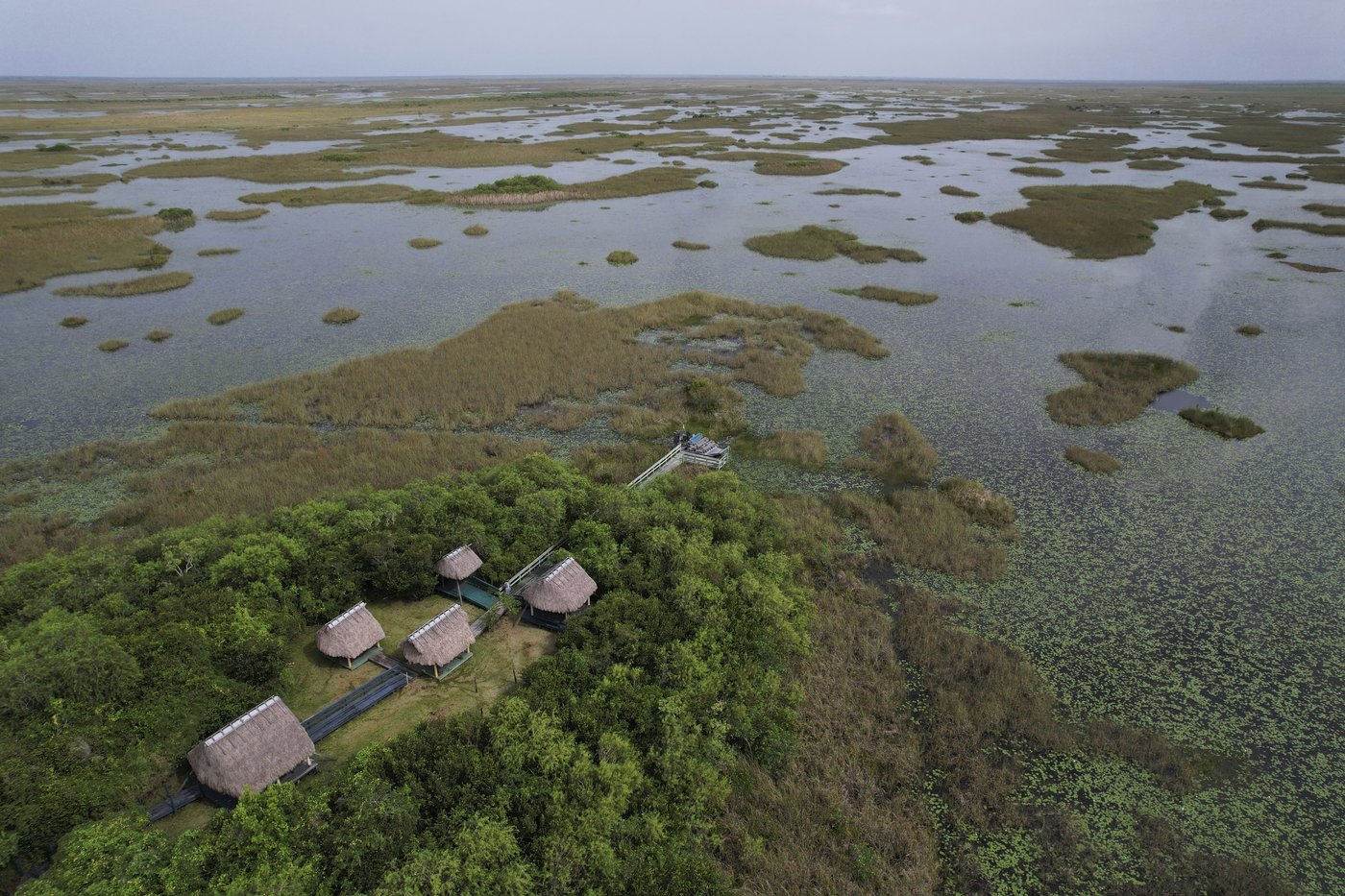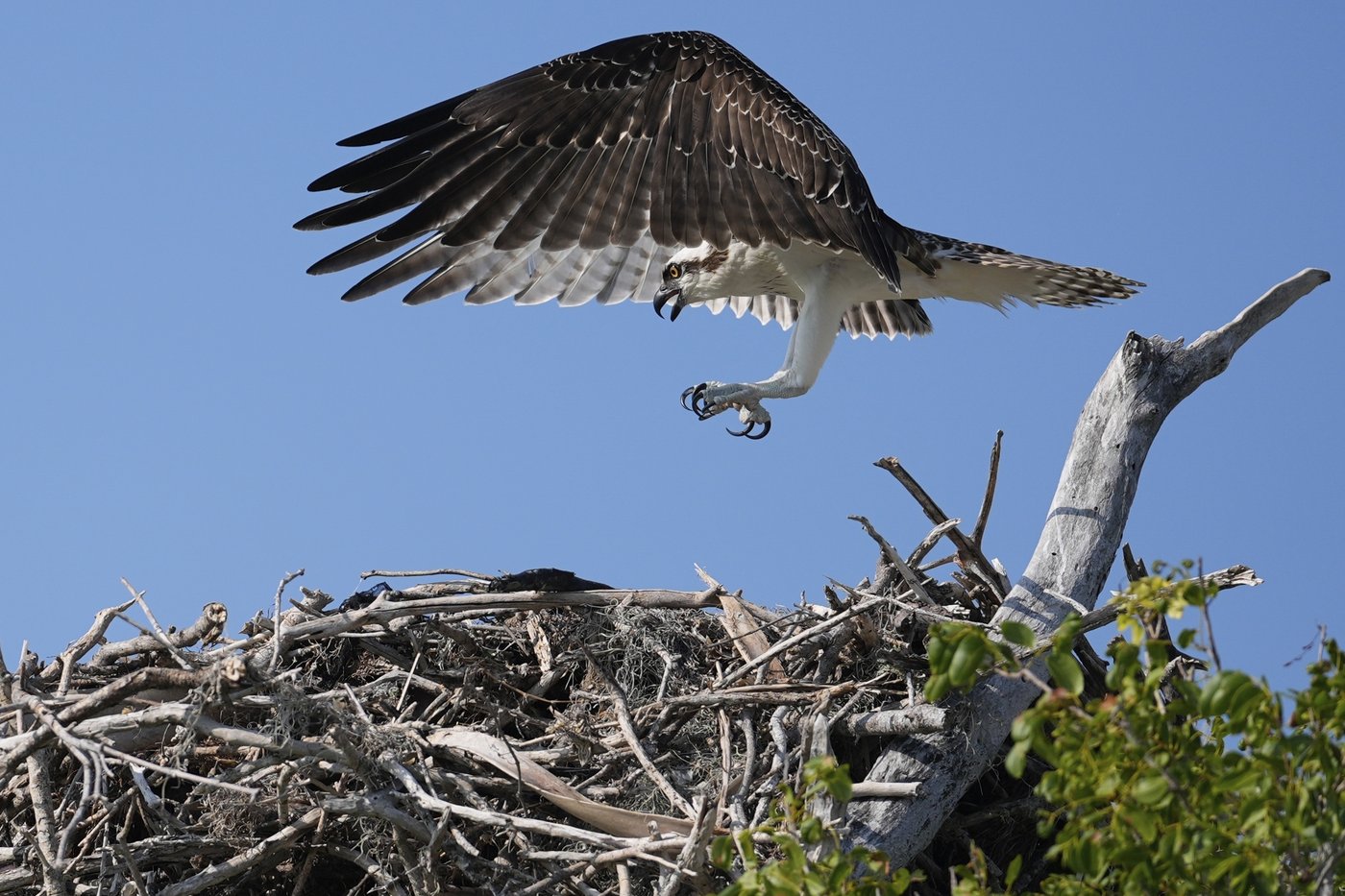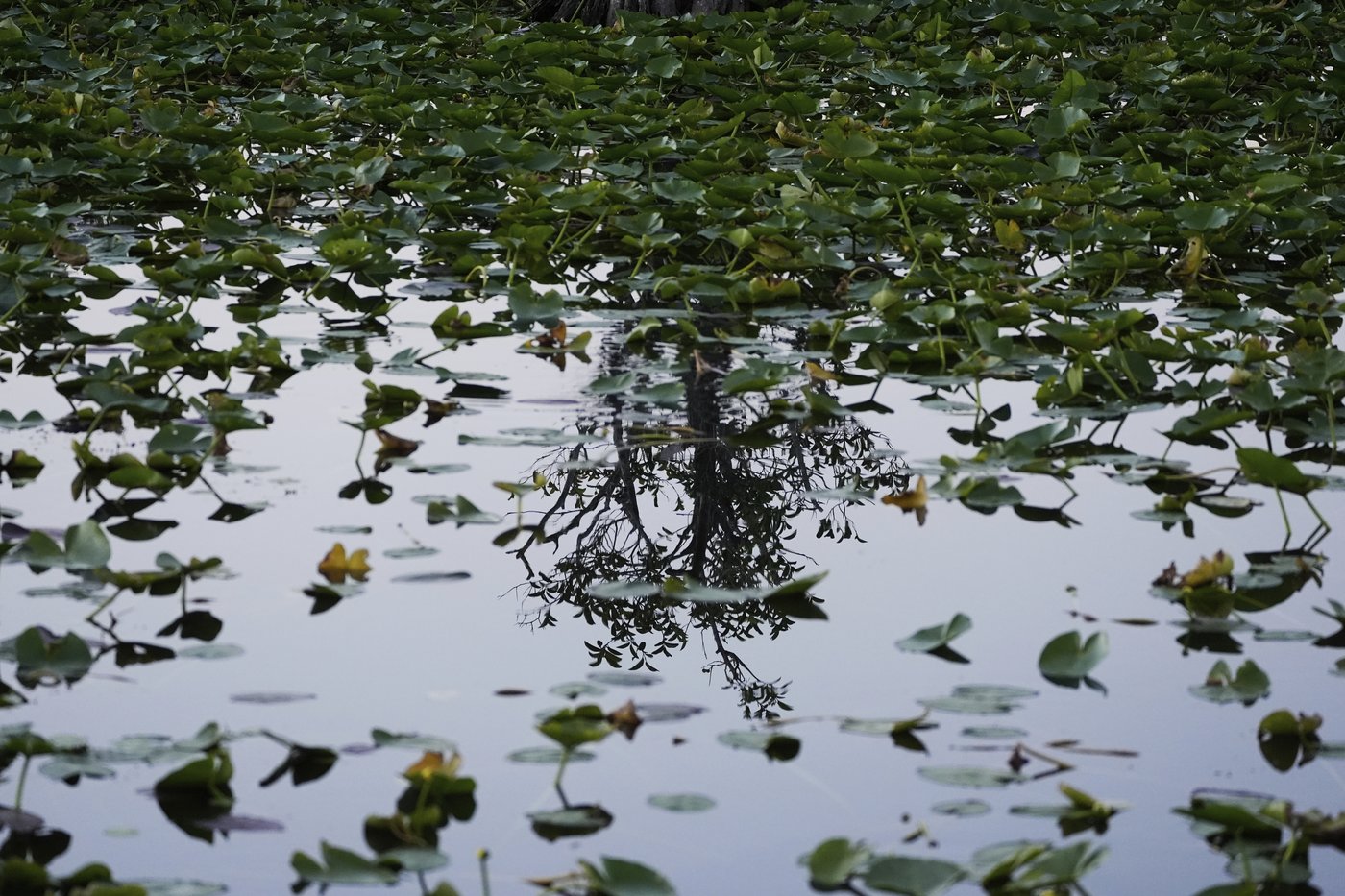
Takeaways from AP’s story on the Miccosukee’s fight to protect the Everglades
EVERGLADES, Fla. (AP) — The Miccosukee Tribe of Indians of Florida has long fought to heal and protect the Everglades and what remains of their ancestral lands.
Decades of massive engineering projects for development and agriculture severed the vast wetlands to about half its original size, destroying lands and waterways where the Miccosukee people hunted, fished, gathered plants, held sacred rituals and put their deceased to rest.
A massive state-federal project to clean the water and rehydrate the landscape aims to undo much of the damage. But tribe members say water management decisions have contributed to fires, floods and water pollution in their communities and cultural sites. Adding to the list of threats are climate change and the fossil fuel activities that caused it.
Although the Miccosukee people were historically reluctant to engage with the outside world due to America’s violent legacy against Indigenous people, that is changing with a new tribal administration. The tribe has played an increasingly collaborative and leadership role in healing the Everglades while protecting their deep connection to tradition and nature.
Even so, a committee of experts acknowledged a lack of meaningful engagement with the Miccosukee and Seminole tribes from state and federal agencies. They called for applying Indigenous knowledge to restoration efforts and a consistent partnership with tribes.

Here are the highlights from the full story:
‘It’s our turn to protect the Everglades’
For generations, the Miccosukee people made pilgrimages from northern Florida to the Everglades to fish, hunt and hold religious ceremonies. During the Seminole Wars that broke out in 1817, the U.S. Army pushed the Miccosukee west and seared tribal villages in a region known as the Big Cypress, forcing them, along with the Seminole people, to seek refuge on tree islands deep in the Everglades.
“That’s the reason we’re here today. We often look at the Everglades as our protector during that time. And so now, it’s our turn to protect the Everglades,” said Talbert Cypress, tribal council chairman.
Western Everglades Restoration Project

Many of the Everglades’ modern problems began in the 1940s when the region was drained to build cities and plant crops. Billions of dollars have been poured into projects with the goal of protecting and restoring what remains, but tribe members say water management decisions and restoration efforts have flooded or parched lands where they live and hold ceremonies.
That’s a reason the tribe has pushed for decades for a comprehensive response with the Western Everglades Restoration Project aimed at cleaning polluted water, improving hydrology, providing flood protection and reducing the likelihood and severity of wildfires. Groundbreaking for the project began in July.
A fight over a wilderness designation, fossil fuel activities
The Miccosukee people’s access to the Big Cypress National Preserve — a vital part of the Everglades, the tribe’s ancestral lands and home to traditional villages — was in jeopardy.
The National Park Service wanted to designate the preserve as wilderness, which the tribe said would have significantly impacted their traditional ways of life.

After a fight involving campaigns, a petition, testimonials and support from numerous government officials, the tribe succeeded in stopping the designation.
The Miccosukee continue working to stop more oil exploration in the preserve by acquiring mineral rights.
Elders look to youth to protect the Everglades
Tribal elder Michael John Frank remembered growing up on tree islands in the Everglades, a time when the water was so clean he could drink it and wildlife was abundant.
Tribal youth member Hector Tigertail heard similar stories growing up. They helped him feel connected to the Everglades and to his culture, serving as reminders of his role as a steward of lands that have cared for his people.

Tigertail is doing what he can to preserve the Everglades for his generation and those to come. He works with the Miccosukee Tribe’s Fish and Wildlife Department to remove invasive species like pythons and fish like peacock bass.
“To hear that we’re losing it slowly and slowly saddens me,” said Tigertail. “But also gives me hope that maybe there is a chance to save it.”
———
The Associated Press receives support from the Walton Family Foundation for coverage of water and environmental policy. The AP is solely responsible for all content. For all of AP’s environmental coverage, visit https://apnews.com/hub/climate-and-environment





Join the Conversation!
Want to share your thoughts, add context, or connect with others in your community?
You must be logged in to post a comment.


















